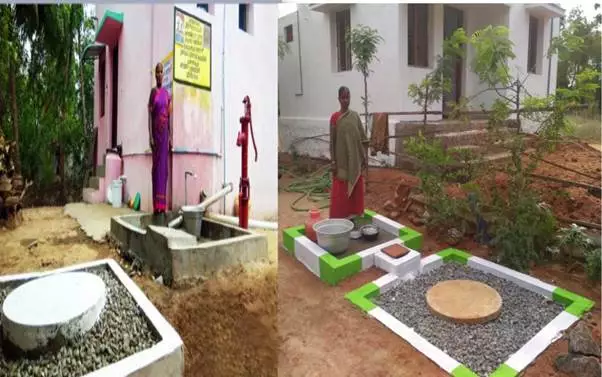The village panchayat of Pappankuzhi in Sriperumbudur Block of Kanchipuram district in Tamil Nadu has succeeded in tackling the problem of greywater from kitchens and bathing areas of households that overflowed or stagnated, posing public health and environmental risks, by constructing both individual and community soak pits.
Previously, in the absence of any viable treatment process, grey water generated from the rural households was disposed of into the open drain, streets, vacant land or into water bodies that resulting in surface water contamination, land contamination and aggravated water borne diseases.
With the support of the district administration as many as 93 of the 254 households of the village were provided with individual soak pits under the government’s MGNREGA scheme and 161 households were connected to the drainage channel constructed under MGNREGA, according to information provided by the Union Ministry of Jal Shakti.
A soak pit, also known as a leach pit, is a covered, porous-walled chamber that allows water to slowly soak into the ground and helps recharge the groundwater table.
Further, two horizontal soak pits with 18 cum and 16 cum were constructed at the disposal point and the filtered water was let into water bodies of Periya Eri and Rajanthangal Eri.
Constructed at disposal point of drainage systems, horizontal soak pits are suitable for clusters with high ground water table areas. The treated grey water can thereafter be used for agriculture purposes.
These initiatives have contributed immensely to the visual cleanliness of the Panchayat, putting it on the road to ODF Plus.




















